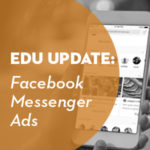posted by John Staak on November 04, 2015 in Converge Blog
Kelly Bailey Shares the Importance of Linking Labor Market Data with Academic Planning
At Converge 2015, Kelly Bailey ofBurning Glass explored the world of real-time labor market data and how such data should play an integral part in developing new academic programs and how we communicate to our current and potential students. With career outcomes (such as salary level) becoming more and more important to students, it is increasingly vital to reconsider academic planning within the context of labor market trends. There is more data available to make informed decisions about our curriculum than ever before. The challenge is knowing where to start. Is your institution ready?
Here are the top action items your institution can follow to create academic opportunities that will generate more career-ready students:
Develop curriculum that incorporates emerging skills. The top skills demanded by employers are changing… and fast. Social Media is currently the top skill for Marketing Specialists having doubled in demand since 2010. Your institution must re-evaluate curriculum in light of changing skills – and re-evaluate often. If your Business School currently does not offer Social Media courses, this should be made a major priority.
Account for geographic differences in the demand for skills. Different cities and regions of the country demand different skills from college graduates. For example, there is a much stronger need for product management skills for Marketing Managers in San Jose, California than in Chicago, Illinois. Make sure that your institution is accounting for the regional characteristics of your labor market when developing curriculum.
Communicate with employers. If you don’t have access to droves of labor market data to inform your curriculum development, at least make time to listen to the needs of local employers. For example, if you are heading up the curriculum development for a journalism school, take the time to talk to local newspapers, stations, and publications and discern what skills they seek in local graduates. Most of the time employers are too busy to tell you what they want, so make time to ask.
Create career signposts for students. Linking a degree to a career is often confusing for students, and can sometimes lead to dropping out of school altogether. Creating a clear line of sight for students will help them understand why taking certain classes or developing particular skills are essential to their career journey. Help students understand why your institution can help them reach their goals by mapping careers to specific courses and majors.
Did we miss you at Converge 2015? Good news! It’s not too early to register forConverge 2017 in Palm Springs.







